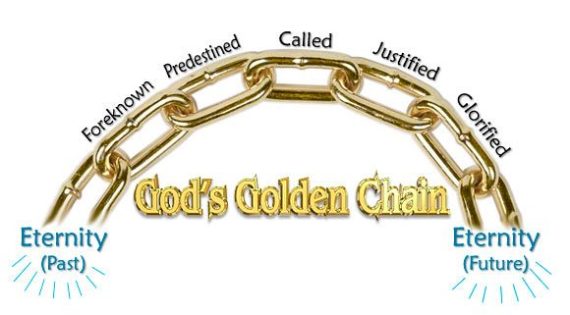We know that God cares for us. We know that He gave His life for us. However, the message “God thinks you are WORTH dying for” is one which although is heartfelt, passionate and sincere is unfortunately false and ultimately antithetical to the true teachings of the Gospel. It is a message which I see plastered all over Christian social media, Christian music, and Christian sermons. I believe it is a message which is said with good intentions and is one which for the most part is sincere. However, it is sincerely wrong. At first glance, it is a seemingly harmless message but is one which is rooted in flawed theology. This has significant ramifications as to how we view and relate God and how to view the Gospel message. The Gospel is not about our own worth but rather Jesus’s supreme worth.
In an already self-centered world, this message gives further ammunition to our cultural outlook. We are far too “me” centric. It is all about what worth we can give to someone else. Our social relationships are founded on the premise of what we can provide to the other party. As is a result of this, we tend to take this premise into our relationship with God. We think that He loves us and died for us because we must have some worth to offer to Him. This is far from the truth. I understand the sentiment behind the message, I am not writing this article to say that we have no worth or that God doesn’t value you. In fact, as Children of God, we have infinite worth! However, what I am hoping to explain is that we did not have [special] worth,[ in a salvific sense], prior to Christ’s death on the cross. What I will be pointing out in this, is what should be obvious: it wasn’t our preexisting worth (prior to the cross) that prompted God to forsake heaven and die on a cross. Indeed cross was about worth, just not ours.
Theology matters
Theology matters. Our knowledge of God matters. The way we view God matters. The way we present the Gospel matters. We waste much of our lives gathering knowledge about unimportant things. When it comes to our favorite sports teams, we are glued to our screens to ensure we have up to date information regarding them. When it comes to our favourite celebrities we are so engrossed in the knowledge surrounding their daily lives. BUT, when it comes to trying to understand a perfectly Holy, infinite and marvelous God, we are lazy and sloppy. How we work our knowledge of God tells us how much, or how little, we love him.
I can imagine a lot of responses I’ll get to this article would be something along the lines of “it’s not that deep bro”. On the surface level, the statement seems pretty harmless, right? So what is the big fuss? The fuss is that it’s not a harmless statement. We shouldn’t simply brush it under the rug, instead, we should snuff out as soon as we can. It is simple, minor errors in our theology like this, which have significant impacts in the long run as to how we view God. The issue with the idea that “you are worth dying for” be it explicitly or not, the statement stems from the belief that we somehow add any sort value or worth to God. Quite frankly, it is lazy teaching and is in fact anti-Gospel. The truth is God doesn’t need us (Acts 17:25). He is not somehow deficient and we do not somehow complete Him. God is not needing of someone to love or to be loved by. Rather He exists in perfect completeness, in a perfect love relationship within the three persons of the Trinity. I am in complete agreement that God loves us immensely, and that the fact that He sent His son to die for us should blow us away. The issue I find with the message is the fact Jesus loved us so much, doesn’t really translate to OUR worth. The cross is about HIS worth, not ours.
Affirming the Consequent
‘Affirming the consequent’ describes a situation when someone takes a true statement and invalidly concludes the converse. For example, If a car has no petrol, it won’t run. The car doesn’t run. Therefore there is no petrol. There is a clear and obvious flaw in reasoning here. The conclusion fails to see that there are other things which can have the same symptoms. We commit this same logical fallacy when we make the assumption that we are valuable because Jesus died for us. From a logical perspective, there are many other reasons as to why Jesus died on the cross. Let’s examine a few of those below.
Christ died because of His worth it, not ours
There is no fathomable way that a stubborn, rebellious, sinful, flawed, created being is worthy of the infinite, marvelous, perfect, Holy, creator of the universe dying for them.You and I for Jesus is no trade at all!
Romans 3:12 makes this abundantly clear, “All have turned aside; together they have become worthless; no one does good, not even one.” We were ‘worthless’ in our sin. This is what makes the Gospel, Gospel! This is what makes Grace, Grace! If it was true that we were worth dying for then the Gospel is no longer a Gospel of Grace, instead, Christ’s death simply becomes the Gospel of entitlement. We are simply getting what we deserve. This is far from the truth. The truth is rather that we were enemies of God and deserving of his eternal wrath (Ephesians 2:3). so then why would God substitute Himself for us? The cross is not a display of how worthy or valuable we are. Instead, as John piper famously says, It is a display of “the hopeless, undeserving, dirty, sinful, guilty, rebellious, corrupted condition of the people who were purchased.” We were “unworthy” so we needed someone who was “worthy” to take our place. Christ did not die on that cross because you or I were “worth it”, He died because He was. Only the life of a perfect, holy and blameless lamb of God could satisfy the ransom needed to pay for our infinite debt.
“For by grace you have been saved through faith. And this is not your own doing; it is the gift of God, not a result of works, so that no one may boast.” ~ Ephesians 2:8-9
The concept of Grace is one which most of us struggle with; human nature almost demands us to do something, to have some worth or some part to play. I understand the desire and sentiment behind the message, I understand the need to help people see they have value in the eyes of God. However, the message is one which is far too “me” centered. The greatest encouragement you can give someone isn’t God died for you because you are worth it, it is rather that God died for even though you aren’t. Note the difference. The former puts pressure on your performance whilst the latter allows us to rest in God’s performance. The true grasp of Grace is understanding that God loves me regardless of my worth, my past, what I’ve done and what I am yet to do. Regardless of whether I stumble or whether I fail, He loves me still because of how much He is worth. If we approach God as deserving we are not approaching Him by grace through faith. The call of the Gospel is to remove our eyes from ourselves and what we are doing and to instead focus on God and what He has done. Our boasting is in Christ and not ourselves. Through Him, we are adopted (Romans 8:23), we are forgiven (Romans 5:1), we are redeemed, purchased and rescued. All of this is found in HIS worth and His doing, not ours.
Christ died so God can be Glorified, not us
“And the Word became flesh and dwelt among us, and we have seen his glory, glory as of the only Son from the Father, full of grace and truth” (John 1:14)
God purposed for Christ to die so that He may be glorified (John 12:23, 27). This was God’s plan before the very foundations of the earth (Revelations 13:8). As strange as it may sound, the crucifixion of Christ was the greatest display of God’s Glory. Human nature and today’s culture has us exclusively thinking about the cross in relation to our own lives. “Christ died for me” we sing, “Christ died for my salvation” we proclaim. Both of which are true however, they are only mere byproducts. Christ primarily died for God. For a lot of us, this is a new way of thinking about the cross, for most of our lives we were sold a “me” centered Gospel. Jesus Himself knew that His life was to be lived to solely the glory of God and also that His death was to be for the glory of God. He came into the world, He says in John 17:4, to glorify God. In John 7:18, He came seeking the glory and only the glory of the one who sent Him. Everything He did was for God. Even when anticipating the cross, the wrath, and the pain that came with it, Jesus cries out “But for this purpose, I came to this hour. Father, glorify Thy name.” John 12:27.
Jesus went to the cross, not primarily for us (although that was one reason), but primarily to be obedient to the Father. The Father had the Son killed to glorify Him (Isaiah 53:10-12). The whole of the bible is about this act of glorification of the Son (John 13:31-32). Our worth doesn’t play into it. It wasn’t that we were worth so much to God that He chose to die for us. It is that His Son was worth so much to Him that He was willing to sacrifice Him so that He might be highly exalted. This was God’s plan. We are along for the ride.
God is committed to glorifying himself and He is most glorified in the rescue of sinners. God is the only being for whom to be committed to his own glory isn’t selfish, egotistical or vain, but instead, it is the most loving thing He can do. God’s commitment to his own glory is great news for us because His glory is full of grace and love. Therefore, If He is committed to His glory, because He is so perfectly self-sufficient, the glory of the fullness of His overflows in truth and grace for his creatures. The reason that Christians live for the glory of God is that God lives for the glory of God. All the recorded events in the history of the universe are about God and His glory. We are supporting characters in the play about God. It is the story of God. The cross was the climax, the crescendo of the story. It is where God is most glorified and victorious. We are here to support that.
Christ died to give us worth, not because of it
“There is a big difference between:
I’m worthy, so he died for me.
and
He died for me and gave me my worth.
We “were dead in trespasses and sins” (Ephesians 2:1). Therefore, what worth or value is there is something which is dead? Absolutely zero. However, and here is where the “good news” part of the Gospel comes in, He actually loved us despite our condition (John 3:16), and because He did, we now have inestimable worth. The righteousness of Christ, or “worth” if you like, has now been imputed onto us (2 Corinthians 5:21). This was not because we worked for it, not because we earned it, not because we are worthy of it, but because we were unworthy and unable to make ourselves worthy in any way. Our worth is not the “why” for Jesus dying for us, our unworthiness is.
I know that many people, Christians included, struggle with the idea of feeling “unworthy”. There is an inner witness in our hearts which tells us so. However, the Gospel provides a solution and I believe the more we can show people that their worth is not the issue, the better they will understand it. For us to truly grasp the Gospel message, we need to see love and grace shown to us in the time where we least deserve it. What we do instead is we try and suppress that truth, the truth that we a radically depraved and in need of a Saviour. We suppress it with cute, heartfelt human words such as the message discussed today, which although may make you feel good at the time, will not help you find everlasting joy. We find joy when we rest in the finished and perfect work of Christ. The most powerful tool the Gospel message gives us is that when we fall short, and the devil whispers in our ear to make us feel unworthy; so we then run away from God. We get to shout in response “you are right, I’m NOT worthy. . . but He is!”, Jesus’s righteousness is mine because He substituted His worth for my lack thereof.
So do we have any worth? Of couse we do. We have worth because God has given it to us. We are His image-bearers. Furthermore, Psalm 139:13-16 tells us that we are fearfully and wonderfully made. Ephesians 1:13-14 tells us that we are God’s own possession, chosen for the praise of His glory and that we have an inheritance in heaven with Him as His children. However, an important thing to note is that these are not things we have been done or achieved by ourselves. We were either “made” so, “chosen by God”, or it is something we “inherited” and thus, our worth is totally from Him. We are simply recipients, and now we have infinite worth in Him because of the price He paid to make us worthy. That is the good news of the Gospel.

















